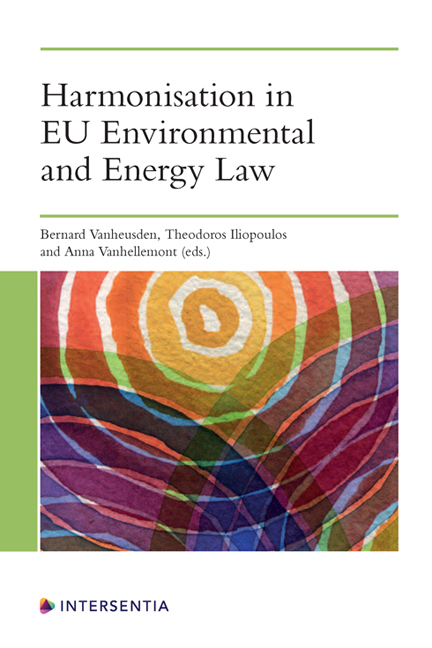Access to Environmental Justice in the EU: Interpretation, Harmonisation and the Search for Consistency
Published online by Cambridge University Press: 26 May 2022
Summary
INTRODUCTION
The principle of consistency is a common-sense tenet underpinning the rule of law, which requires that legal interpretations be consistent, vertically and horizontally. The principle and the related doctrine of consistent interpretation are important tools for the harmonisation of EU law. This chapter conducts an examination of the case law of the Court of Justice of the European Union (CJEU) in the area of Article 9 of the Aarhus Convention UNECE 1998 as an exposition of the failure of the court to uphold the doctrine of consistency horizontally. The case law of the CJEU applying Article 9 of the Aarhus Convention to the issue of standing rights before national courts of Member States can be negatively contrasted with the case law of the CJEU when it applies the same article to standing rights for reviewing acts of the EU institutions before the CJEU under Regulation (EC) 1367/2006 (hereinafter ‘the Aarhus Regulation’). This results in an undesirable lack of harmonisation in the application of the Aarhus Convention principles across the multi-level governance system of the EU.
The case law of the CJEU regarding access to justice in environmental matters (and the provisions of Article 9 of the Aarhus Convention) before the national courts is marked by its emphasis on the need for broad access to justice and consistency of interpretation with the provisions of the Aarhus Convention (even where those provisions have not been implemented in directly relevant EU law measures/do not meet the conditions for direct effect). On the other hand, when NGOs attempt to review environmental decisions of the EU institutions before the General Court, the CJEU has repeatedly refused access in what appears to be a failure to apply the same principles and requirements of consistency and broad access to justice to the EU institutions and its own procedures.
This restrictive approach to review is in direct opposition to the pronouncements of the Aarhus Convention Compliance Committee on the issue in their draftdecision in C32 I & II. It also stands in contrast to the approach of the court in the area of economic interests such as competition and state aid cases, where affected individuals have locus standi without having to demonstrate a particular concern which marks them out from others similarly affected.
- Type
- Chapter
- Information
- Harmonisation in EU Environmental and Energy Law , pp. 101 - 128Publisher: IntersentiaPrint publication year: 2022



